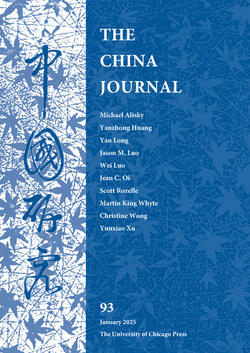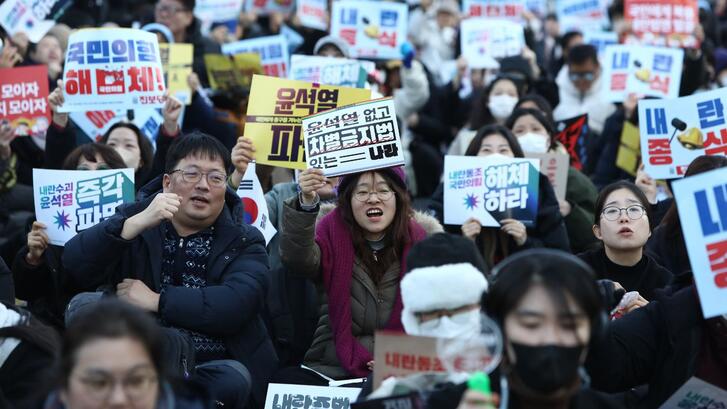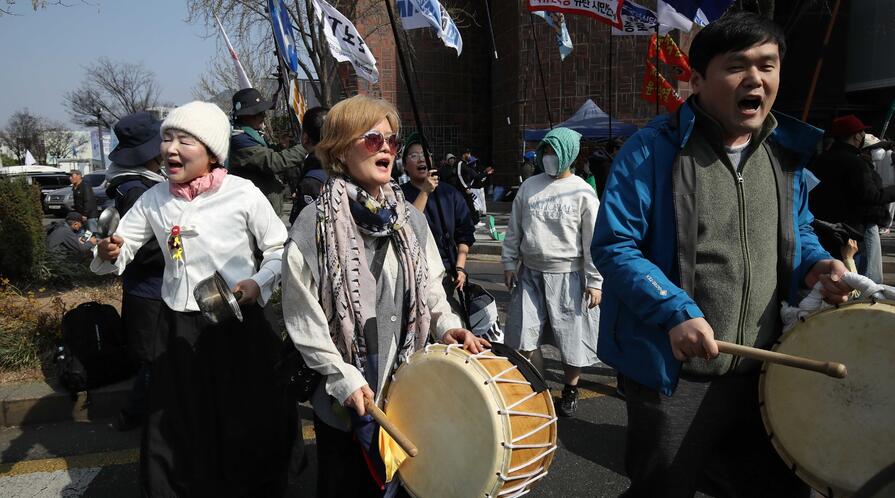Three years after Russia’s full-scale invasion of Ukraine and the joint declaration of a "friendship without limits" by Vladimir Putin and Xi Jinping, the two leaders reaffirmed their partnership during a phone call, pledging continued coordination on foreign policy, security, and trade. Meanwhile, President Donald Trump’s controversial Oval Office meeting with Ukrainian President Volodymyr Zelensky and his administration's vitriolic foreign policy rhetoric have raised concerns that Washington may no longer be the reliable partner it once was. Moreover, amid ongoing U.S.-imposed tariffs, India is bracing for the fallout from Trump’s trade war, despite Prime Minister Narendra Modi’s February visit to the White House, which did not yield the concessions and Trump support New Delhi had hoped for.
The 2025 Oksenberg Symposium, titled China’s Strategic Relationships, brought together experts to discuss these evolving strategic relationships between China, the United States, Russia, and India, and to consider their perspectives and strategic adjustments in response to shifting internal and external political, economic, and social dynamics. The discussion, moderated by APARC’s China Program Director Jean Oi, featured panelists Da Wei of Tsinghua University, Alex Gabuev of the Carnegie Endowment for International Peace, Sumit Ganguly of the Huntington Program on Strengthening U.S.-India Relations at the Hoover Institution, and FSI Director Michael McFaul.
This convening followed Chatham House rules to encourage candor, so the following summary does not attribute comments to individual panelists.
A Partnership Without Limits
The panelists first focused on the increasingly complex relationships between Russia, China, and the United States. On the one hand, a growing China-Russia alignment across military, economic, and political domains has been well documented. On the other hand, Russia’s increasing dependence on China — especially after the war in Ukraine — has raised questions about the asymmetry of their partnership.
Even so, the relationship between the two nations remains strong, partly due to their shared distrust of the West. Although China has been cautious about fully endorsing Russia’s invasion of Ukraine, it has refrained from condemning the war, understanding the risks of destabilizing Russia or fostering a Western-aligned regime.
The View from New Delhi
India’s relationships with the United States and China are marked by a delicate balancing act. The U.S.-India partnership has strengthened over the years, driven by shared concerns about China’s growing assertiveness. Still, despite bipartisan support for this relationship, India’s historical experiences, particularly during the Cold War, have left a lingering distrust toward U.S. intentions. That wariness is now increasing under the uncertainties of the Trump administration.
India's relationship with China is complicated by military and economic disparities and by China’s strategic partnerships in South Asia, particularly with Pakistan. India's policy remains cautious, aiming to maintain a non-aligned stance while strengthening defense and trade ties with the United States and managing tensions with China, especially over border disputes.
Beijing’s Patience
U.S.-China relations took center stage at this year’s symposium. China’s rise as a global power has posed a complex challenge for U.S. foreign policy. Under the first Trump administration, China was portrayed as a revisionist power with expansionist ambitions. Trump’s rhetoric framed China as a strategic adversary, drawing comparisons to the Soviet Union under Stalin. This characterization contributed to the perception of a new Cold War and an accelerated decoupling of the two economies. In the second administration, tariffs and a looming trade war define the relationship.
From China’s perspective, the past decade has seen an overemphasis on its relationship with the United States., which at times strained its ties with Russia and India. China’s growing partnership with Russia, motivated by shared concerns over Western policies, has been key in countering perceived threats, particularly NATO’s expansion. However, China has remained cautious about fully endorsing Russia’s actions, such as the invasion of Ukraine, while acknowledging the risks of a collapsing Russian regime.
China’s relations with India have been challenged by border issues, as well as India’s shift away from non-alignment and its growing ties with the United States. These changes have complicated China’s strategic calculations in South Asia, though recent stabilization in Sino-Indian relations shows potential for improvement.
Challenges for Global Stability
The panelists noted that the increasing competition between the four countries is reshaping the international order, creating a more multipolar world where countries are single-handedly pursuing their national interests. This fragmentation of global power poses challenges for international cooperation but also provides China with opportunities to pursue more flexible diplomatic strategies, potentially easing tensions with Russia and India.
The U.S. response to these changes, particularly under Trump, was heavily scrutinized. In both Trump's first and second terms, the administration’s foreign policy marked a radical departure from past practices, blending radical isolationism, unilateralism, and realism. Panelists noted that the erosion of democratic ideals in U.S. foreign policy contrasts with its role in the Cold War era as a champion of democracy and human rights, particularly in opposition to Soviet authoritarianism. This shift has been especially evident in its approach to Taiwan, where there has been limited emphasis on supporting its democratic values amid growing pressure from China.
This new isolationist stance, driven largely by domestic concerns and a belief that the United States has been exploited in global trade, has led to a strategic pivot away from multilateralism. During Trump’s first term, the administration withdrew from key international agreements such as the Paris Climate Accords, the Iran nuclear deal, and the World Health Organization, favoring "America First" policies over collective global action. The continued shift toward isolationism and unilateralism marks a radical departure from previous administrations' commitment to liberal internationalism.
A Rough Road Ahead
Panelists expressed concern that this dramatic shift could leave Washington isolated, undermining its ability to address global challenges like climate change, international security, and the rise of authoritarian regimes. The erosion of key alliances could also diminish U.S. influence, making it harder to counter the growing power of China and Russia.
One panelist observed that while Trump initially framed China as a strategic adversary, his second term saw more conciliatory rhetoric, though his policies — especially the trade war — could ultimately harm U.S. interests. This approach could erode U.S. global influence by weakening international alliances and multilateral institutions that have long underpinned U.S. power. The panelists agreed that Trump’s foreign policy would fundamentally reshape U.S. relationships with key global players.
The symposium underscored the complexity of balancing strategic interests in a rapidly changing world, where traditional alliances are being tested and new dynamics continually emerge. The challenge for China, the United States., Russia, and India is to navigate these relationships in ways that secure their national interests while contributing to broader global stability.



















